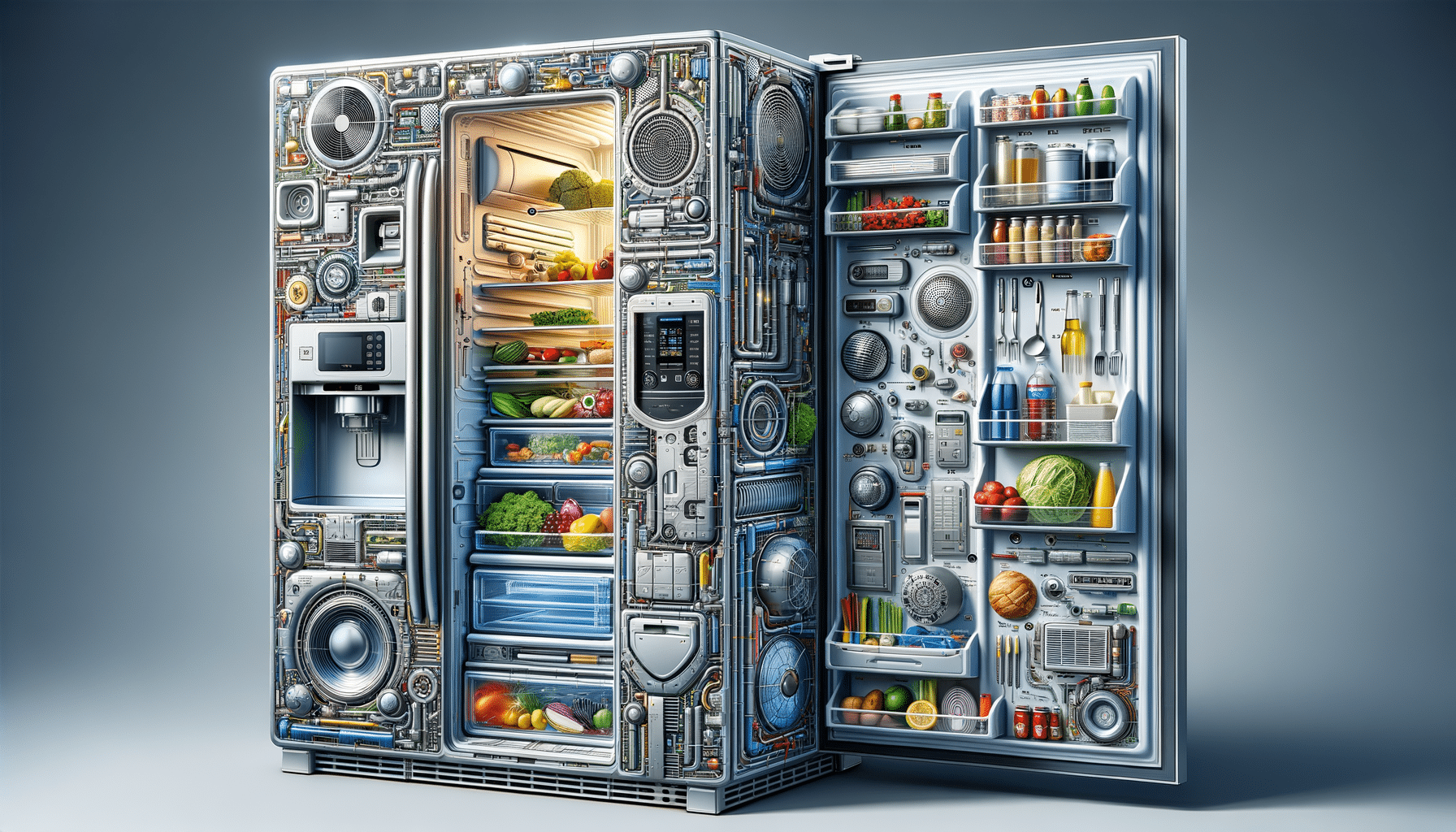
Journey into the Realm of Modern Refrigeration: An In-depth Look
The Evolution of Refrigeration Technology
Refrigeration technology has come a long way since its inception, evolving from simple ice storage methods to sophisticated systems that are integral to modern life. The journey began in the early 19th century with the invention of the first vapor-compression refrigeration system, which laid the groundwork for today’s advanced technologies. This system used a cycle of evaporation and condensation to cool air, a principle still in use.
As we moved into the 20th century, the introduction of chlorofluorocarbons (CFCs) revolutionized refrigeration by providing a more stable and efficient refrigerant. However, the environmental impact of CFCs led to the development of alternative refrigerants, such as hydrofluorocarbons (HFCs) and natural refrigerants, which offer lower global warming potential.
Today, modern refrigeration systems incorporate cutting-edge technologies like digital compressors and smart thermostats, enhancing efficiency and user control. These advancements not only improve performance but also contribute to energy conservation, making refrigeration more sustainable. The evolution of refrigeration technology reflects a continuous pursuit of efficiency and environmental responsibility.
The Role of Refrigeration in Modern Society
Refrigeration plays a pivotal role in various aspects of modern society, from food preservation to medical applications. It has transformed the way we store and consume food, significantly reducing food waste and extending shelf life. This capability is crucial for maintaining food security and supporting global supply chains.
In the medical field, refrigeration is indispensable for the storage of vaccines, blood, and other temperature-sensitive materials. It ensures the integrity and efficacy of these critical resources, supporting healthcare systems worldwide. Furthermore, refrigeration is vital for the chemical and pharmaceutical industries, where precise temperature control is necessary for manufacturing and storage processes.
Beyond these applications, refrigeration is also integral to the hospitality and retail sectors, where it enhances customer experience by providing fresh and appealing products. The role of refrigeration in modern society is vast and multifaceted, underscoring its importance in our daily lives.
Understanding Refrigeration Systems: Components and Functions
A modern refrigeration system is a complex assembly of components working in harmony to achieve efficient cooling. At its core, the system relies on four main components: the compressor, condenser, expansion valve, and evaporator.
The compressor acts as the heart of the system, pressurizing the refrigerant and circulating it through the system. The condenser then dissipates heat from the refrigerant, turning it into a liquid. This liquid passes through the expansion valve, where it rapidly expands and cools before entering the evaporator. In the evaporator, the refrigerant absorbs heat from the surroundings, providing the desired cooling effect.
Each component plays a critical role in the refrigeration cycle, and advancements in technology have led to more efficient and reliable systems. Innovations such as variable speed compressors and microchannel condensers have enhanced performance, offering greater energy savings and reduced environmental impact.
Environmental Impacts and Sustainability in Refrigeration
As the demand for refrigeration grows, so does the need to address its environmental impacts. Traditional refrigerants, such as CFCs and HFCs, have been linked to ozone depletion and global warming. In response, the industry has shifted towards more sustainable alternatives, such as hydrofluoroolefins (HFOs) and natural refrigerants like ammonia and carbon dioxide, which offer lower environmental impact.
Energy consumption is another critical factor, as refrigeration systems account for a significant portion of global energy use. Improving energy efficiency through advanced technologies and better insulation can reduce this footprint. Additionally, the integration of renewable energy sources into refrigeration systems is gaining traction, further enhancing their sustainability.
Efforts to improve sustainability in refrigeration are ongoing, with initiatives focusing on reducing greenhouse gas emissions and promoting eco-friendly practices. These efforts are crucial for aligning the industry with global environmental goals and ensuring a sustainable future.
The Future of Refrigeration: Trends and Innovations
Looking ahead, the future of refrigeration promises exciting trends and innovations. The integration of Internet of Things (IoT) technology is set to revolutionize the industry, enabling smarter and more connected refrigeration systems. These systems can optimize performance, predict maintenance needs, and reduce energy consumption through real-time data analytics.
Another promising area is the development of magnetic refrigeration, which utilizes magnetic fields to cool materials without the need for traditional refrigerants. This technology offers the potential for higher efficiency and lower environmental impact, making it a promising alternative for the future.
Furthermore, advancements in materials science are paving the way for better insulation and more efficient heat exchangers, further enhancing system performance. As these trends and innovations continue to evolve, the refrigeration industry is poised to meet the challenges of tomorrow with sustainable and cutting-edge solutions.

